The Emerging Idea of Global Justice
Like the concept of sustainable, the term "Global Justice" is often self-defined so as to suit and agenda or a cause. Yet this is not a new concept and, as we will see, has been around for a while.
For purposes of this course, Global Justice means:
The Earth's Energy and Climate Resources belong to all its citizens, equally.
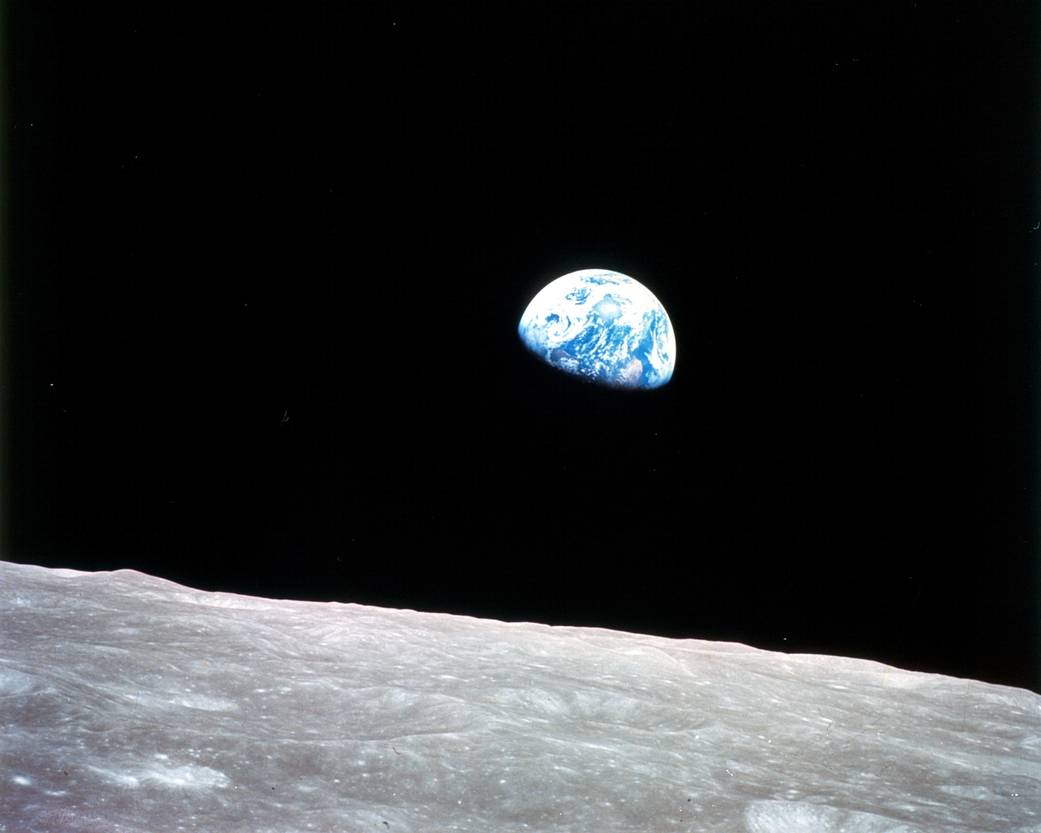
Some history:
1987 Bruntland Report Our Common Future
development that meets the needs of the present without compromising the ability of future generations to meet their own needs,
This statement implies a process in which reasonable material needs are met within ecosystem limits. , and yet data presented earlier on global consumption clearly shows we are moving in the oppostie direction.. Another way to look at this is called the "dignity line" --a culturally specific minimum level of material consumption needed to allow a life with dignity.
In the early 2000s, Julian Agyeman (Professor at Tufts) and colleagues began to more properly define sustainability and to arrive at the concept of "just sustainability" and this is the term that has now morphed into "global justice"
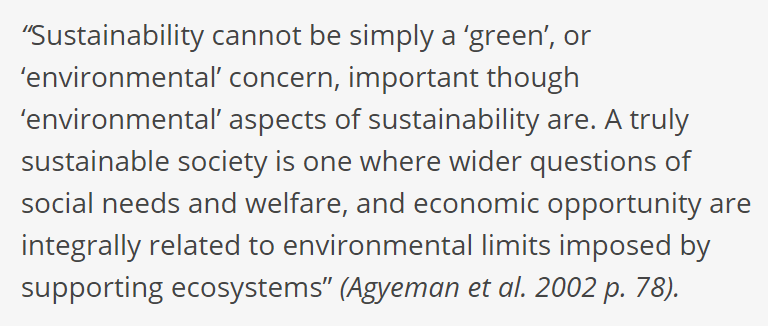

There are essentially 4 conditions that can operationally define global justice:
- Improving our quality of life and well-being;
Improvement in people's wellbeing is essential for both justice and sustainability. Our current global economic growth cannot be relied upon to deliver economic prosperity to the majority rather than a minority. Indeed, the rate of global inequity is rapidly increasing. Can wellbeing be delivered without continued economic growth? One thing is for certain, humanity needs better yardsticks for measuring progress, based on wellbeing than our current headline indicator: GDP
- Meeting the needs of both present and future generations (intra- and inter- generational equity);
A key question is what is the relationship between material consumption and needs, particularly considering the extent to which justice and equity are needs? There is growing evidence that inequality damages our capability for flourishing, our ability to meet our needs. Increasingly, human need for social identity is defined by our ability to consume. This is 'Bling' culture. How do we supplant consumption-based social identity generation within a more just and sustainable framework?
- Justice and equity in terms of recognition process, procedure and outcome.
Justice is not a simple concept. Different ideological foundations can lead to very different conclusions and outcomes: for example utilitarian (justice as the most beneficial outcome for wider society) vs. egalitarian (justice as meeting individuals' needs). In effect, what metrics should one use to establish that justice has been accomplished?
- Living within ecosystem limits (also called one planet living)
The concept of "limits" is largely viewed as bullshit by most as by the 1990s the very idea of "limits" had been discredited by the apparent failure of predicted shortages of natural resources to emerge. Yet ecosystem limits are quite physically real. What is clear is that as constraints on natural resources have emerged, the capitalist economy has sidestepped them by shifting the crisis around in space, or between environmental domains. For example, in the US, the approach of Peak Oil has triggered the cry of "Drill Baby Drill" exhorting Americans to exploit oil in yet more remote locations, and to develop unconventional gas and oil sources through fracking and tar-sands extraction both of which involve significantly higher carbon emissions than conventional fossil fuels. As a result, apparent limits in resource availability have been translated into still greater pressure on the climate system.
This once again indicates collectively bad behavior and moves a culture in the direction that is completely opposite to that of just sustainability.
Our collective actions continue to pretend that there are no limits to natural resources as we exploit, exploit, exploit to
sell, sell, sell.
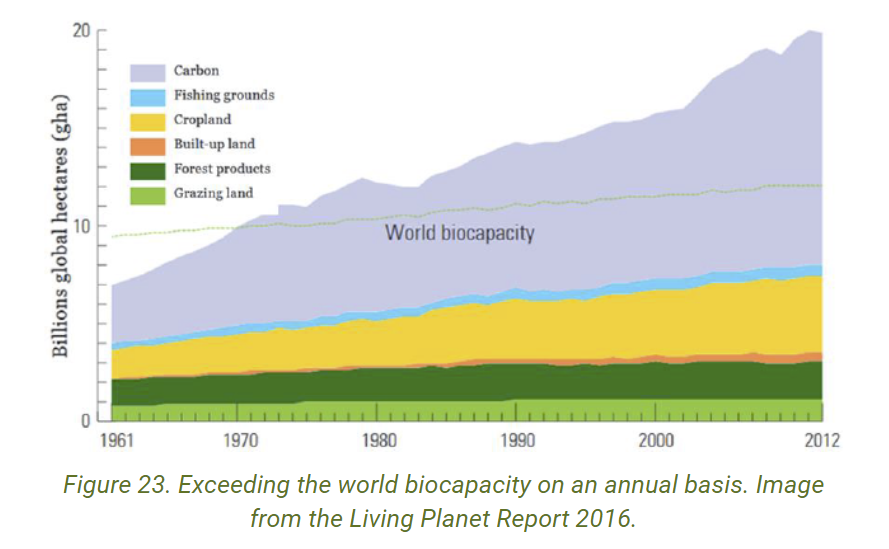
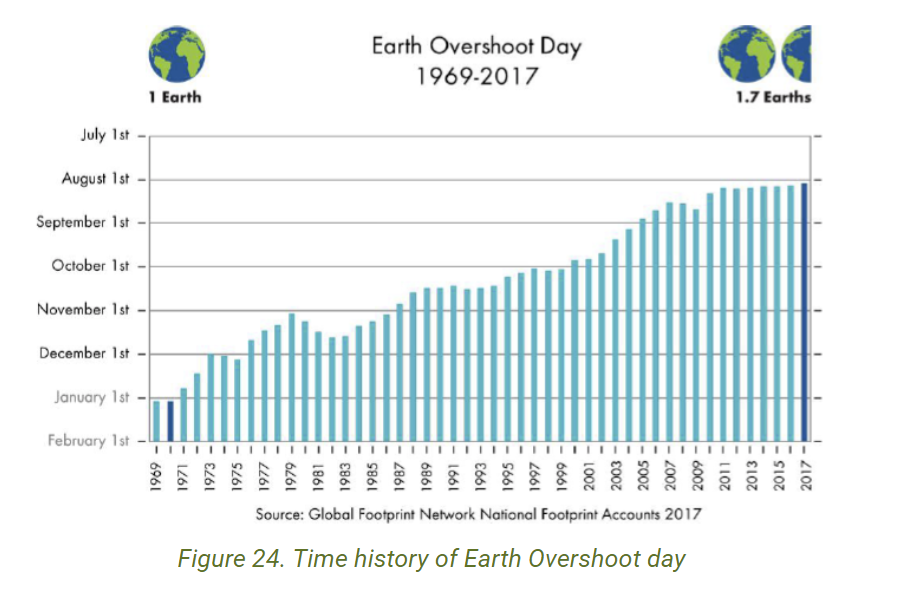
50% = red ; 40% = blue : 10% = gold
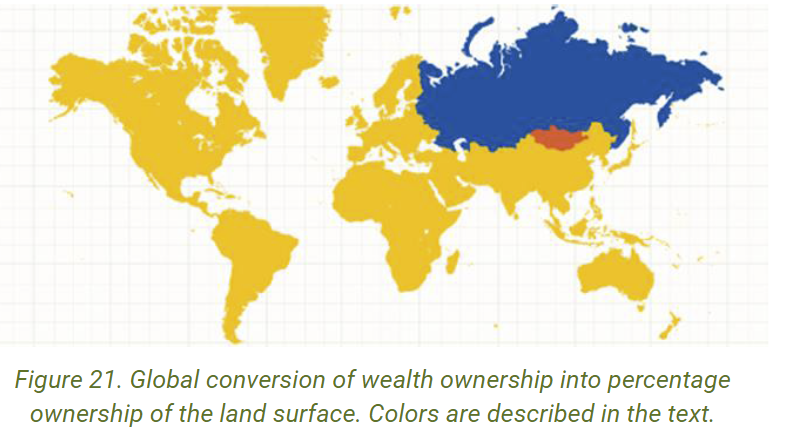
And the Late George Carlin Says "The Big Electron".
|

